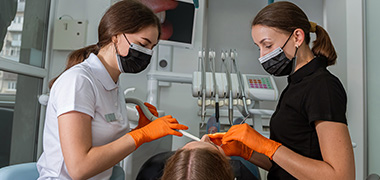
This role has a low level of AI exposure. Core skills such as adaptability, social intelligence, and complex physical tasks remain beyond the capabilities of current AI.
Explore all careersAn Anaesthetic Technician assists patients during anaesthesia and maintains equipment. Strong communication and attention to detail are essential.
Get qualified to work as an Anaesthetic Technician with a course recognised across Australia. Speak to a training provider to learn more.
Browse occupations related to Anaesthetic Technician
In Australia, a full time Anaesthetic Technician generally earns $1,453 per week ($75,556 annual salary) before tax. This is a median figure for full-time employees and should be considered a guide only. As you gain more experience you can expect a potentially higher salary than people who are new to the industry.
 Courses.com.au Team
Courses.com.au Team
Employment numbers in this industry have remained stable in recent years. There are currently 620 people working as an Anaesthetic Technician in Australia compared to 550 five years ago. Anaesthetic Technicians may find work in larger towns and cities where major health facilities are located.
Source: Australian Government Labour Market Insights
 Courses.com.au Team
Courses.com.au Team
If you’re planning a career as an Anaesthetic Technician, consider enrolling in a Diploma of Anaesthetic Technology. You’ll learn to monitor patients’ vital signs while under anaesthesia, assist with clinical procedures and respond to anaesthesia-related emergencies.
 Courses.com.au Team
Courses.com.au Team



An Anaesthetic Technician works with patients undergoing anaesthesia during medical procedures. You’ll discuss procedures with patients and gather information which may affect their reaction to anaesthesia. Anaesthetic Technicians also maintain equipment and instruments used during the administration of anaesthesia.
Anaesthetic Technicians should have strong personal skills and be able to communicate well with patients. You’ll need to be organised and have excellent attention to detail. Anaesthetic Technicians must be able to follow instructions and maintain correct procedures during their duties.